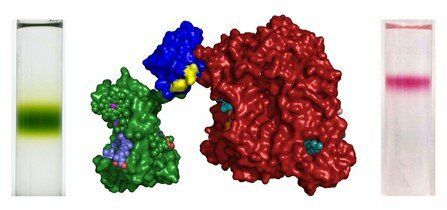A team of scientists, led by the University of Bristol, has developed a new photosynthetic protein system enabling an enhanced and more sustainable approach to solar-powered technological devices.
The initiative is part of a broader effort in the field of synthetic biology to use proteins in place of man-made materials which are often scarce, expensive and can be harmful to the environment when the device becomes obsolete.
The aim of the study, published today in Nature Communications, was the development of “chimera” photosynthetic complexes that display poly-chromatic solar energy harvesting.
